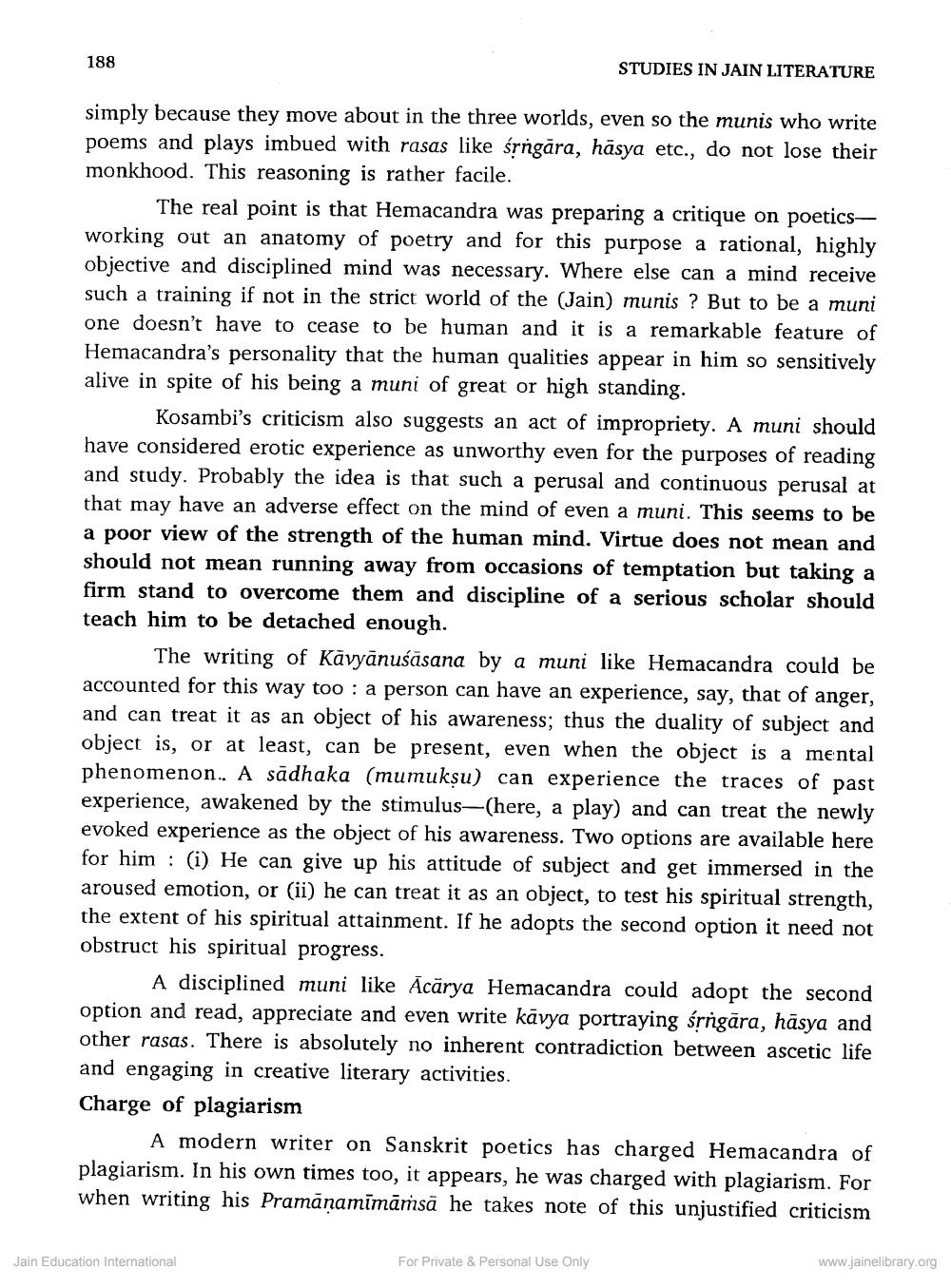________________ 188 STUDIES IN JAIN LITERATURE simply because they move about in the three worlds, even so the munis who write poems and plays imbued with rasas like srngara, hasya etc., do not lose their monkhood. This reasoning is rather facile. The real point is that Hemacandra was preparing a critique on poeticsworking out an anatomy of poetry and for this purpose a rational, highly objective and disciplined mind was necessary. Where else can a mind receive such a training if not in the strict world of the (Jain) munis ? But to be a muni one doesn't have to cease to be human and it is a remarkable feature of Hemacandra's personality that the human qualities appear in him so sensitively alive in spite of his being a muni of great or high standing. Kosambi's criticism also suggests an act of impropriety. A muni should have considered erotic experience as unworthy even for the purposes of reading and study. Probably the idea is that such a perusal and continuous perusal at that may have an adverse effect on the mind of even a muni. This seems to be a poor view of the strength of the human mind. Virtue does not mean and should not mean running away from occasions of temptation but taking a firm stand to overcome them and discipline of a serious scholar should teach him to be detached enough. The writing of Kavyanusasana by a muni like Hemacandra could be accounted for this way too : a person can have an experience, say, that of anger, and can treat it as an object of his awareness; thus the duality of subject and object is, or at least, can be present, even when the object is a mental phenomenon.. A sadhaka (mumuksu) can experience the traces of past experience, awakened by the stimulus--(here, a play) and can treat the newly evoked experience as the object of his awareness. Two options are available here for him : (i) He can give up his attitude of subject and get immersed in the aroused emotion, or (ii) he can treat it as an object, to test his spiritual strength, the extent of his spiritual attainment. If he adopts the second option it need not obstruct his spiritual progress. A disciplined muni like Acarya Hemacandra could adopt the second option and read, appreciate and even write kavya portraying srngara, hasya and other rasas. There is absolutely no inherent contradiction between ascetic life and engaging in creative literary activities. Charge of plagiarism A modern writer on Sanskrit poetics has charged Hemacandra of plagiarism. In his own times too, it appears, he was charged with plagiarism. For when writing his Pramanamimamsa he takes note of this unjustified criticism For Private & Personal Use Only www.jainelibrary.org Jain Education International




